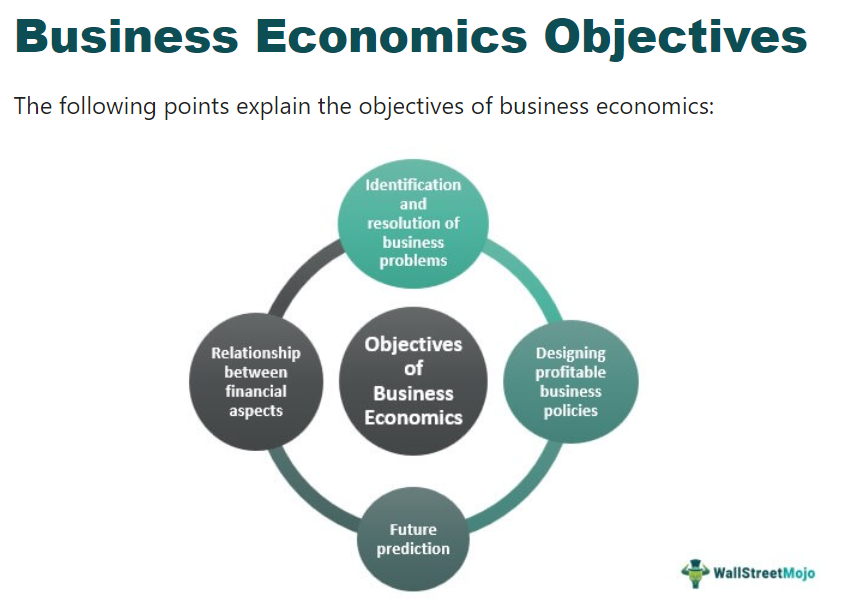Company and Economics 101: Vital Expertise for Aiming Leaders
In today's quickly advancing business landscape, aspiring leaders should cultivate a thorough understanding of basic critical structures and financial principles. Understanding ideas such as supply and need, market structures, and competitors is not merely academic; these aspects are important fit effective decision-making and cultivating innovation. Monetary literacy-- specifically in cash money circulation administration-- offers as a keystone for lasting development. As we check out these vital topics, it ends up being evident that the intersection of organization acumen and economic insight is important for future leaders to not just grow however survive in their ventures. What implications does this have for strategic management?
Comprehending Supply and Need
Supply and demand are basic ideas that continually underpin the mechanics of any type of market economy. The connection in between these 2 pressures figures out the rate of goods and services along with their accessibility in the market. Supply refers to the amount of a product that manufacturers are eager and able to cost numerous rate levels, while demand shows the quantity that customers are willing and able to buy.
When need raises without a corresponding increase in supply, rates often tend to rise, indicating producers to enhance result. Alternatively, if supply overtakes need, rates may drop, prompting producers to reduce outcome. This vibrant interplay helps to accomplish market equilibrium, where the quantity supplied matches the quantity required at a specific cost point.

Exploring Market Structures
Market structures specify the competitive setting in which organizations run, dramatically influencing their rates techniques, output levels, and total success. Recognizing these structures is crucial for aspiring leaders, as they form business decisions and market characteristics.
There are four main types of market structures: ideal competitors, monopolistic competitors, oligopoly, and syndicate. In a completely competitive market, many firms provide the same items, causing price-taking actions. Monopolistic competition functions several companies offering set apart products, permitting some prices power. Oligopolies contain a few dominant firms that can affect market value, often causing strategic interactions and competitive habits. Finally, syndicates exist when a solitary firm controls the market, resulting in the greatest degree of rates power and possible market inefficiencies.
Each market framework offers distinct challenges and opportunities for organizations. Leaders have to recognize these subtleties to successfully place their organizations, develop competitive techniques, and react to market changes. By grasping the implications of numerous market structures, striving leaders can make educated decisions that drive their services towards sustainable success and development in an ever-evolving financial landscape.
Financial Principles for Leaders
Reliable management in service requires a strong understanding of economic principles, as they underpin tactical decision-making and resource allocation. Leaders have to comprehend essential concepts such as capital management, productivity analysis, and financial forecasting. These components are important in examining a company's economic health and leading its future direction.
Cash money flow management is specifically important; it makes certain that the organization keeps enough liquidity to meet its commitments while pursuing development opportunities. Analyzing productivity enables leaders to recognize which services or products produce the greatest returns, allowing educated financial investment decisions. Furthermore, economic projecting assists anticipate future incomes and expenditures, promoting even more accurate budgeting and resource allowance.
Additionally, understanding economic statements-- such as annual report, revenue declarations, and cash money flow declarations-- outfits leaders with the insights necessary to make educated selections. This knowledge promotes responsibility and openness, boosting stakeholder depend on.
In today's dynamic company atmosphere, leaders need to be proficient at analyzing economic information to respond swiftly to market modifications. Inevitably, a strong understanding of monetary concepts equips leaders to drive their companies towards lasting success while effectively managing sources and dangers.
The Role of Competitors
Understanding the role of competition is necessary for any type of business aiming to flourish in a saturated market. Competition drives innovation and performance, engaging services to enhance their products and solutions continuously.
Furthermore, competition can cause better pricing techniques. As firms vie for market share, they are incentivized to use competitive rates, profiting consumers while difficult services to handle costs effectively. This vibrant fosters a culture of continual enhancement, pushing companies visit our website to enhance operations and improve worth recommendations.
In addition, competition can promote market development by encouraging brand-new participants. New businesses commonly introduce fresh concepts and methods, further improving the total market landscape. Firms should likewise be vigilant; excessive competitors can lead to market saturation, reducing earnings for all gamers involved.
Eventually, understanding and navigating competition is crucial for leaders. By acknowledging its diverse duty, aspiring leaders can make educated choices that place their organizations for long-term success in an ever-evolving industry.
Strategic Decision-Making
In the realm of company, calculated decision-making is essential to discover here attaining lasting goals and adjusting to transforming situations. This process entails evaluating various options and picking one of the most reliable training course of activity that straightens with the organization's vision and goals. Reliable critical decision-making needs a thorough understanding of both interior and exterior environments, including market trends, affordable characteristics, and organizational capacities.
Leaders must gather pertinent details, evaluate it critically, and projection potential results. Additionally, analyzing risks connected with each different allows leaders to expect challenges and establish backup plans.
Eventually, effective strategic decision-making equips organizations to browse complexities, take advantage of possibilities, and react proactively to dangers. By cultivating a society that values educated decision-making, organizations place themselves to introduce and preserve an affordable side in an ever-evolving company landscape. Hopeful leaders must refine these abilities, as their ability to make audio strategic decisions will significantly influence their organizations' success and sustainability.

Final Thought
To conclude, a strong grasp of company and economics principles is important for aspiring leaders. Knowledge of supply and need, market frameworks, and financial principles cultivates educated pop over to this site efficient and decision-making resource appropriation. Recognizing the duty of competition further boosts calculated thinking, enabling leaders to browse complicated market characteristics. Ultimately, this fundamental understanding equips future leaders to introduce and line up business methods with developing market problems, leading the way for sustained success and productivity.
Understanding these principles is crucial for aiming business leaders, as they develop the structure for effective decision-making in prices, resource allotment, and market method. Comprehending supply and demand furnishes leaders to navigate the complexities of market variations and consumer behavior.
Monopolies exist when a solitary firm manages the market, resulting in the highest possible level of prices power and possible market ineffectiveness.
By grasping the implications of numerous market frameworks, striving leaders can make educated choices that drive their services towards lasting success and development in an ever-evolving financial landscape.
Recognizing the function of competition additional boosts critical reasoning, allowing leaders to navigate complicated market dynamics.